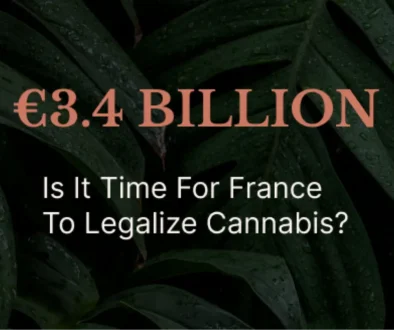Unpacking the Impact: CDTFA’s Strain on California’s Cannabis Industry, Recent Developments, and Industry Advocacy

LOS ANGELES–California, a trailblazer in the legalization of recreational cannabis, has faced challenges as the industry seeks to establish itself and flourish within the state. The California Department of Tax and Fee Administration (CDTFA) has emerged as a pivotal player, sparking debates and concerns within the cannabis sector.
In this article we delve into the issues surrounding the CDTFA’s impact on California’s cannabis industry while examining recent developments that indicate a potential shift in tax strategies. Additionally, we address claims regarding the alleged extraction of hundreds of millions of dollars from customers, what actions could be taken, and the influence of industry advocacy.
Taxing Troubles and Recent Developments
Critics in the cannabis industry have voiced primary concerns about the tax burden imposed by the CDTFA. The taxation framework, encompassing both cultivation and excise taxes, has been a focal point of contention.
Detractors argue that the existing tax structure impedes the industry’s ability to compete with the illicit market, where prices remain lower due to the absence of such tax obligations.
Recent signals from the CDTFA suggest a willingness to address the industry’s concerns regarding high taxes. Insights indicate that the CDTFA is exploring avenues to lower taxes, potentially extending these benefits to city taxes as well. This proactive stance signals an acknowledgment of the need to create a more business-friendly environment within California’s evolving cannabis landscape.

Retail Excise Tax Exemptions and Claims of Revenue Mismanagement
A noteworthy development pertains to the Retail Excise Tax, which now excludes non-cannabis items attached to a cannabis product. This includes ancillary items like packaging and cartridges. However, retailers must meet specific criteria to qualify for this exemption, and allegations have arisen regarding revenue mismanagement.
1. The charge must be reasonable.
2. Non-cannabis items must be available for purchase without the cannabis product.
3. The non-cannabis item can exceed the minimum packaging requirement in cost.
4. While not mandatory, it is advisable to separately state the charge on the receipt.
5. Inclusion on the menu is a mandatory requirement.

Revenue mismanagement refers to the alleged mishandling or misapplication of the prior distributor based excise taxes (which expired on 12/31/2022) by distributors, specifically in relation to the imputed wholesale price of cannabis products.
It is claimed that some distributors may have overlooked or misunderstood the guidelines provided by the CDTFA, resulting in the collection of excise taxes on the entire imputed wholesale price without appropriately itemizing out the value of “accessories,” such as vape cartridges or other non-cannabis items.
Allegations of CDTFA Misleading Practices
Amidst these developments, claims have surfaced that the CDTFA may have misled distributors through various channels, including guidance, training, and discussions. Some distributors allegedly overlooked the fine print and collected excise taxes on the imputed wholesale price without itemizing out “accessories.”
Industry Advocacy and Recent CDTFA Discussion Paper
Adding to the discourse, on October 2nd, the CDTFA issued a discussion paper on the topic. This move was reportedly influenced by leading cannabis retailers in California who applied pressure to address the industry’s concerns. The paper represents a significant step towards transparency and collaborative dialogue between regulators and industry players.

What’s Next? Advocacy, Transparency, and Collaboration
While recent developments suggest a potential shift in the CDTFA’s approach to taxes within the cannabis industry, claims of mismanagement and misleading practices demand further scrutiny.
Advocates for transparency and fairness in taxation practices call for a thorough examination of the allegations, prompting a discussion that involves tax attorneys, fact-checking, and collaboration between industry stakeholders and regulatory bodies.
As the industry continues to evolve, addressing these concerns becomes crucial for fostering a sustainable and prosperous cannabis market in the Golden State.
For all the latest updates be sure to check 420CPA.com and subscribe to our newsletter. Reach out to Stephanie Jeffries at 420 CPA to book a consultation to find out how your business can flourish from working with us here at 420 CPA.
About Our Authors
Abraham Finberg, Managing Partner
420 CPA AB FinWright
Abraham Finberg MBA, CPA, managing partner at AB FinWright, has been a leader in the cannabis sphere since 2009, counseling clients in all phases of business advisory and tax, from start-up through M&A and IPO.
Rachel Wright, Managing Partner
420 CPA AB FinWright
Rachel Wright, MST, CPA, managing partner at AB FinWright, specializes in cannabis accounting and taxation for multi-state and multinational entities, advising clients on everything from internal controls to the bottom-line implications of mixed local, state, federal and international statutes of taxation.






